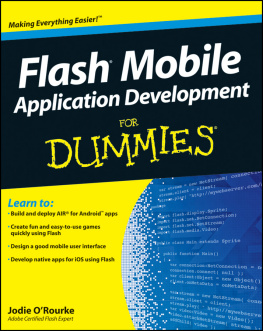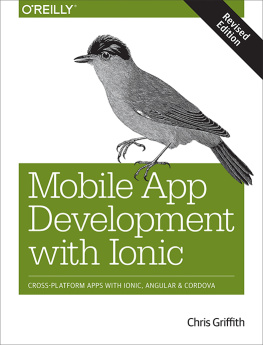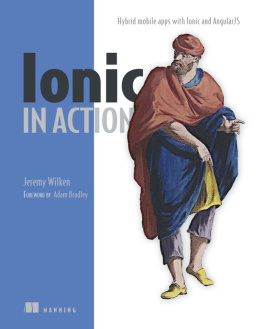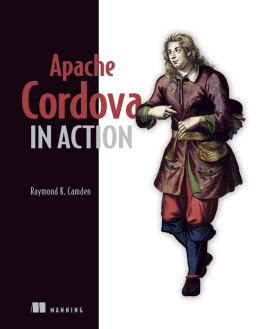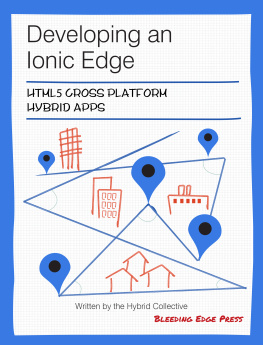Fu Cheng - Build Mobile Apps with Ionic 2 and Firebase: Hybrid Mobile App Development
Here you can read online Fu Cheng - Build Mobile Apps with Ionic 2 and Firebase: Hybrid Mobile App Development full text of the book (entire story) in english for free. Download pdf and epub, get meaning, cover and reviews about this ebook. year: 2017, publisher: Apress, Berkeley, CA, genre: Computer. Description of the work, (preface) as well as reviews are available. Best literature library LitArk.com created for fans of good reading and offers a wide selection of genres:
Romance novel
Science fiction
Adventure
Detective
Science
History
Home and family
Prose
Art
Politics
Computer
Non-fiction
Religion
Business
Children
Humor
Choose a favorite category and find really read worthwhile books. Enjoy immersion in the world of imagination, feel the emotions of the characters or learn something new for yourself, make an fascinating discovery.
Build Mobile Apps with Ionic 2 and Firebase: Hybrid Mobile App Development: summary, description and annotation
We offer to read an annotation, description, summary or preface (depends on what the author of the book "Build Mobile Apps with Ionic 2 and Firebase: Hybrid Mobile App Development" wrote himself). If you haven't found the necessary information about the book — write in the comments, we will try to find it.
Fu Cheng: author's other books
Who wrote Build Mobile Apps with Ionic 2 and Firebase: Hybrid Mobile App Development? Find out the surname, the name of the author of the book and a list of all author's works by series.
Build Mobile Apps with Ionic 2 and Firebase: Hybrid Mobile App Development — read online for free the complete book (whole text) full work
Below is the text of the book, divided by pages. System saving the place of the last page read, allows you to conveniently read the book "Build Mobile Apps with Ionic 2 and Firebase: Hybrid Mobile App Development" online for free, without having to search again every time where you left off. Put a bookmark, and you can go to the page where you finished reading at any time.
Font size:
Interval:
Bookmark:
App Store | Number of available apps | Downloads to date |
|---|---|---|
App Store (iOS) | 2.2 million | 140 billion |
Google Play | 2.6 million | 65 billion |
Windows Store | 669,000+ | -- |
BlackBerry World | 240,000+ | 4 billion |
Amazon Appstore | 334,000+ | -- |
- Use Angular ( https://angular.io/ ) as the JavaScript framework. Since Angular is a popular JavaScript framework, the large number of Angular developers find it quite easy when moving to use Ionic for mobile apps development.
- Provide beautifully designed out-of-box UI components that work across different platforms. Common components include lists, cards, modals, menus, and pop-ups. These components are designed to have a similar look and feel as native apps. With these built-in components, developers can quickly create prototypes with good enough user interfaces and continue to improve them.
Font size:
Interval:
Bookmark:
Similar books «Build Mobile Apps with Ionic 2 and Firebase: Hybrid Mobile App Development»
Look at similar books to Build Mobile Apps with Ionic 2 and Firebase: Hybrid Mobile App Development. We have selected literature similar in name and meaning in the hope of providing readers with more options to find new, interesting, not yet read works.
Discussion, reviews of the book Build Mobile Apps with Ionic 2 and Firebase: Hybrid Mobile App Development and just readers' own opinions. Leave your comments, write what you think about the work, its meaning or the main characters. Specify what exactly you liked and what you didn't like, and why you think so.



